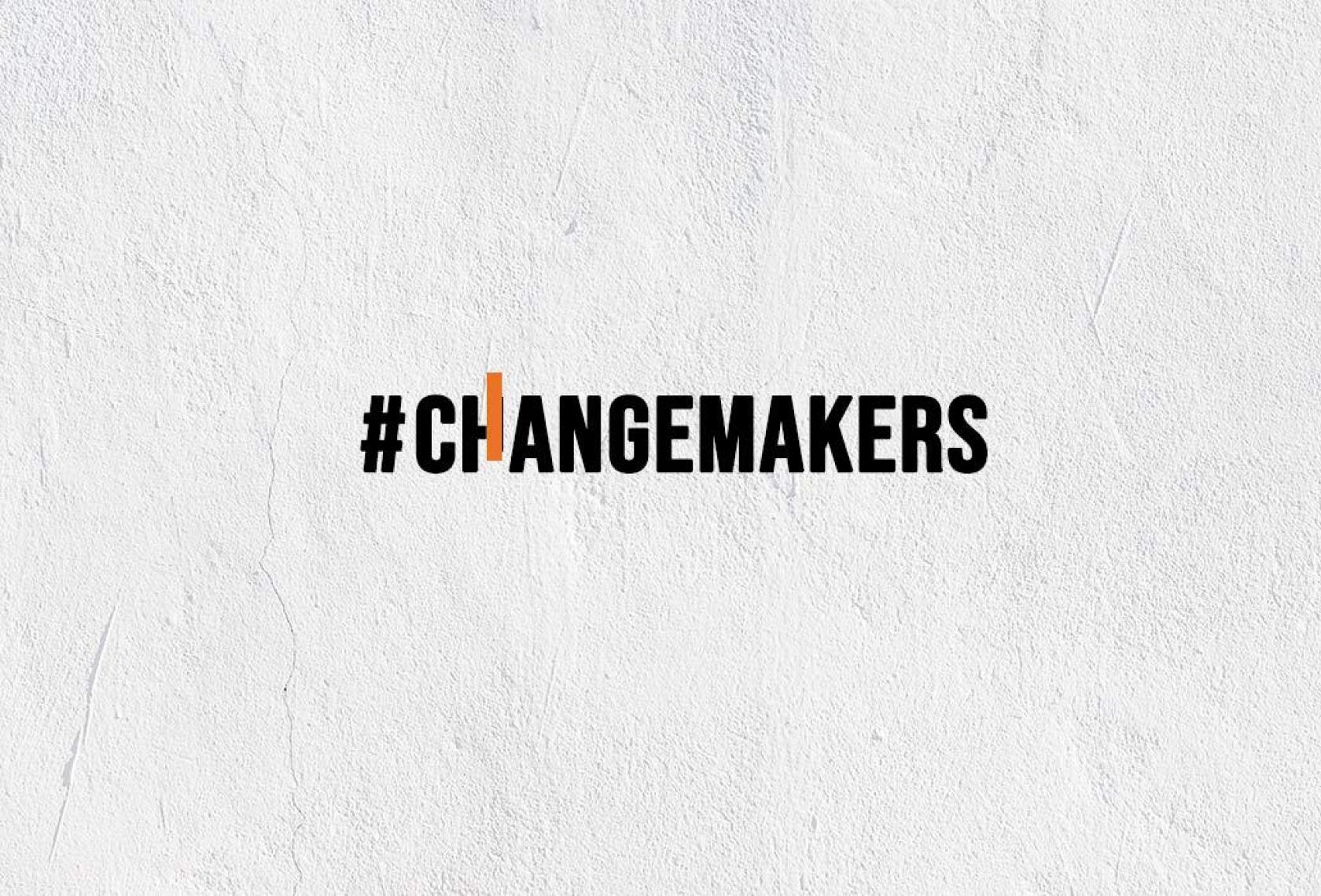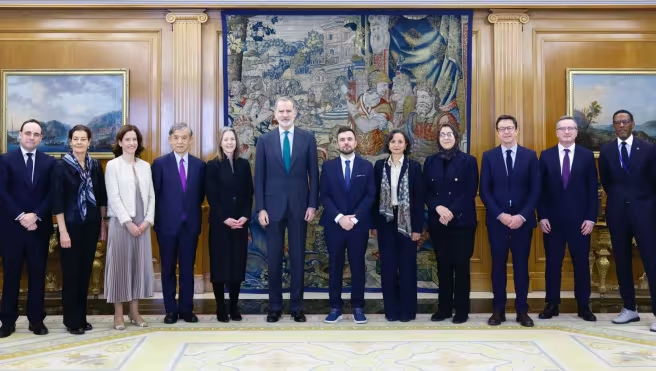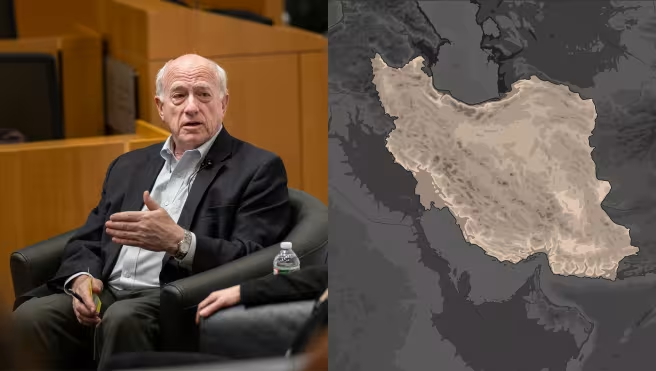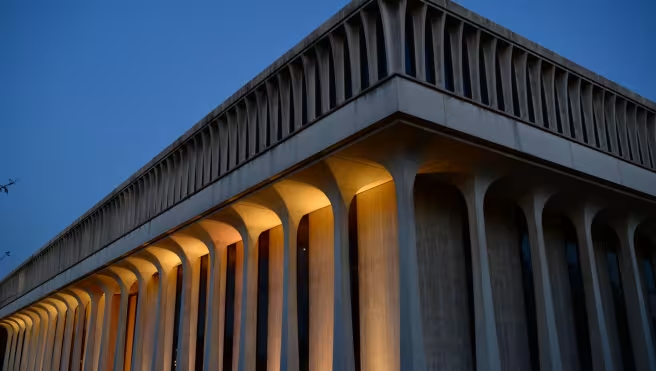President Joe Biden’s recent speech on voting rights signaled a commitment to helping preserve democracy, and today, Jan. 19, the Senate will debate and vote on legislation centered on voting rights protections. This issue is very much on the mind of Asha Rangappa ’96, a lawyer and CNN commentator. In this Q&A and bonus podcast, she discusses the necessary steps the U.S. must take to preserve democracy, including ensuring voting rights and building social trust.
Rangappa is a senior lecturer and director of admissions at Yale University’s Jackson Institute for Global Affairs. She teaches national security law and related courses. She graduated from SPIA in 1996 and from Yale Law School in 2000. In between, she was a Fulbright Scholar in Bogota, Colombia. Following law school, she served as a law clerk for the Honorable Juan R. Torruella, U.S. Court of Appeals for the First Circuit in San Juan, Puerto Rico. She then joined the Federal Bureau of Investigation as a Special Agent, specializing in counterintelligence investigations in New York City from 2002 until 2005.
Q: What is/are the most important policy issue(s) facing us today?
Rangappa: Saving democracy. I believe the government is a good thing and has the power to reinforce democratic values. We've seen a lot of erosion over the past few years and the ways in which we expected our institutions to create guardrails –– they've delivered, but they have been weakened in the process. It's like we were hit by a Mack truck and we're recovering in the hospital. It's going take a lot of time to heal and rebuild and go through the physical therapy to get everything working again. But if we get hit again, then it's going to be over; we’re already weakened. That's where I think we are right now. I'm worried.
Q: What are some of the concrete steps that the Biden administration and others should consider taking at this point to preserve democracy?
Rangappa: Ensuring voting rights is paramount. Voting is the bedrock of our democracy. You have to ensure that everyone has the opportunity and access to be able to vote. What we're seeing are a lot of anti-democratic initiatives being taken, not only in restricting access to the vote, but also in changing the ways that votes are certified. All of these things are fundamentally anti-democratic, and they're setting us up for a bad situation this year and in 2024. It's not about what the outcome is. It's when people don't trust the outcome. If you have everyone believing that the results of an election are illegitimate, you destroyed democracy. It's like the dollar bill. Everyone has to believe that it works and agree to some ground rules for it to function. We're at a place where some of those ground rules and that basic consensus is breaking down.
Q: In your work, what current project or initiative are you most excited about?
Rangappa: I teach a class called “Russian Intelligence Information Warfare and Social Media.” It's a policy class, but it's also history, law, and intelligence. Ultimately, it’s about getting students to think about the intersection of disinformation with technology and the impact that it has on democracy. In the end of the class, students write policy papers with proposals to address one aspect of the problem. I love reading them because they’re solution oriented.
I also write about this issue –– the erosion of our democratic guardrails. I'm a member of the legal profession. One of the worst things I’ve seen is lawyers becoming complicit in eroding a lot of these norms in the last few years and continuing to do so. I'm involved in bar associations that are looking at ways lawyers can reinforce the rule of law and the ethics of the legal profession. I'm also interested in writing a book. It's still in the formulation phase. I'm not ready to talk about it yet, but that's the long-term project that I see on the horizon.
Q: Over the course of your career, what are the most important skills/strategies you’ve learned?
Rangappa: One thread, particularly from the FBI to being the dean of admissions at Yale Law School to teaching, is learning what makes people tick and where they're coming from. If we did more of that in society, we'd be in a better place. The other theme for me is taking risks and being into things that excite me and not having tunnel vision on what I expect my career to look like or the path that I need to follow. That's allowed me to experience quite a lot.
Q: In what ways did the Princeton School of Public and International Affairs prepare you for your career?
Rangappa: Princeton was a fabulous place to explore. The School had distribution requirements that forced you to get outside of your comfort zone in terms of your intellectual interests with good conditioning. You had to be nimble across a number of different disciplines. SPIA trained me to do that. I also straddled a lot of different worlds when I was at Princeton. While I was focusing on Latin American drug policy in my academics, I was in the triangle club in my free time doing silly sketches and dancing on stage. I got to explore and discover different interests and facets of who I am when I was at Princeton.
Q: When it comes to decision-making, what are the most effective strategies? How do you make critical decisions and forge a consensus?
Rangappa: One of the things we explore in my class is the idea of social trust. It's the way that we create value from human relationships. Social trust is important for a number of reasons, but especially for democracy because it creates a certain bond between you and your fellow citizen –– people that you may not know, but you know that you are united around common values. Countries, for example, that have high levels of social trust tend to have not only high levels of civic engagement, but people pay their taxes and contribute to charity. There's more lubrication in society in the sense that things run more efficiently and easier because you don't have people at each other's throats. Historically, when we've had high levels of social trust in the United States, it was before television when people were engaged in their communities and interacting in real life. It's like when you're on a train and you speak to a stranger, you feel like you've connected, and there's a way in which it makes you feel more connected not just to that person, but to people generally. As we've become more isolated, we have lost that. It makes it easier for us to imagine our fellow citizens as enemies, and we lose this ability to create agreement and the reservoir of general goodwill that you need to have disagreements productively. The solution is getting people back out and engaging. COVID-19 has not helped us. The Atlantic published an article called “The Pandemic Has Erased Entire Categories of Friendship.” It talks about this concept of peripheral connections we have –– the person that you buy your coffee from on the corner and all these things that make you feel connected to the broader world. COVID obliterated that, at least for a little while. We need to not only get that back, but we need to do it at a larger scale. Some of that is getting involved in local organizations or the kinds of things that we're not sitting around looking at our screens all day. Commenting on a friend's Facebook post is not the same as picking up the phone and calling them or seeing them in person over lunch. We have an entire generation that doesn't know anything else at this point. How can we swing the pendulum back to some sort of balance?
Q: What can we be optimistic about?
Rangappa: People are becoming more engaged. People are paying attention. One thing that social media has allowed us to do is become aware of things that were easy for us to either be ignorant of or blind to, whether it's human and civil rights abuses here in the states or human rights abuses around the world. There's a certain level of general awareness and activism that has come out of that. People are more connected to the world in the sense that they feel like they have an obligation to fix things, whether it's climate change or any of these other things. The question is: How can we channel that in a way that also makes everyone feel more connected? When I get overwhelmed with everything, I try to come back to my little corner of the world. Am I doing what I need to do with my friends, with my family, with my community? When we get to the micro level, you do see a lot of people doing the right thing and doing good things in the world.
Q: What do you think it takes to be a good leader?
Rangappa: Leadership requires courage today. We teach leadership as though it's a position. You're a leader if you hold the highest position in any given organization. When those leaders are not behaving ethically or when there's misconduct, leadership is when somebody who is at the bottom is willing to speak truth to power, even at great risk to themselves or their job. We see this in extreme situations, like if you look at Russia and Alexei Navalny, who is the opposition leader. He's had an assassination attempt against him but still went back to Russia and was imprisoned. This is a story that we see all the time of opposition leaders. We call them opposition, but they're leaders. They're going up against the power structure. We need people with moral courage and who are unwilling to just follow the leader, and be their own leaders, follow the strength of their own convictions. That's what I think it takes.
#Changemakers: Alumni Making a Difference is a Q&A series featuring alumni of the Princeton School of Public and International Affairs.






